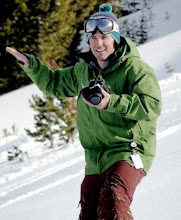So i only managed to read the first section of Burnt Norton before having what I think is at least a little epiphany about epiphany. So in the spirit of the class and the blog I'm going to run this by all of you to see what ya'll think. Forgive me if my thoughts come out a little garbled
"Time present and time past are both perhaps present in time future"
Eliot uses the word perhaps to pose a question of time and experience, both real and potential, may co-exist.
"What might have been and what has been Point to one end, which is always present."
Eliot argues they do coexist in the present but if so where do all these "might have beens" exist.
In "Footfalls echo in the memory." Thus begins Eliot's facination in echos. What might have been exists as echos following us around. These echoes of "what might have been" are the "the unheard music hidden in the shrubbery" "Moving without pressure, over the dead leaves, In the autumn heat, through the vibrant air." Unheard echoes are the key to the rose garden, the source of enlightenment. All one must do is listen closely to these unheard echos to gain entrance into this rose garden. Our ear must find the proper pitch to match the silence and the echo is revealed. Once inside the garden, countless other echos, revelations of what might have been, hide in the underbrush and like the bird says we must "find them, find them."
Well thats all fine and dandy but how do we find the key to the mythical and enlightening rose garden? How do we discover all of these "dignified, invisible" echoes? While they are silent, elusive, even tricky, the echoes are sound and a very quiet sound needs only a megaphone to boost the volume. Or... perhaps a "drained pool, dry the pool, dry concrete, brown edged" shaped perfectly to cause these silent echoes to reverberate and resonate back to us. A device, a sense, an emotion, an image, a yummy treat shaped perfectly to reflect silent stalking echoes of memory back to us in time present and back into our soul; thus creating epiphany.
For Eliot, a dry pool in the box circle garden creates this resonance. It finds the proper wavelength to boost the signal of the echoes and the pool "filled with water out of sunlight, And the lotos rose, quietly, quietly, The surface glittered out of the heart of light." He finds the key, the secret to the echo, the entrance to the rose garden, and in the ultimate connection of East and West this particular rose garden shows forth a single lotos. But that's not all, in that single moment of epiphany, that particular time present, the rose garden gives up all of it's secrets. "They were behind us, reflected in the pool." Everything reflected, resonating, the ultimate AWE! experience. As Douglas said "The entire ocean in a glass of water." But in this case all of the echoes of time past, present, and future are reflected in a pool tuned to a precise but indescribable pitch exposing it all. (On a side note this sounds oddly familier to Bruno's "Divine Mind" the ability to know all that ever is, was, and will be.)
Sadly the feeling is fleeting. The epiphany is momentary. "A cloud passed, and the pool was empty." And the bird tells us to "Go," forget, "Go, Go, Go...human kind Cannot bear very much reality." But the smart person, the person who paid attention, the person who's soul vibrated at the proper pitch to reflect that first echo remembers, even if only a tiny bit. As I've said before because the memory and the imagination and the soul cannot exist without each other then the astute observer and the profoundly affected, cannot forget completely. A glimmer of the echo remains or maybe even a general outline to harness the echo or, if one is really lucky, the bass note in the mysterious melody that resonates "Time past and time future What might have been and what has been Point to one end, which is always present."
This first section seems to be an answer to the question of "how" in an epiphany. It certainly was one for me.
Tuesday, January 26, 2010
Subscribe to:
Post Comments (Atom)

No comments:
Post a Comment